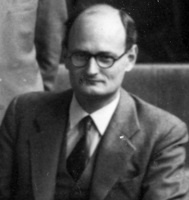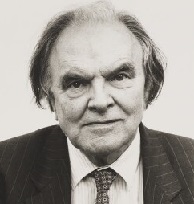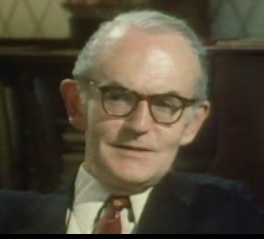
Aristotle was an Ancient Greek philosopher and polymath. His writings cover a broad range of subjects spanning the natural sciences, philosophy, linguistics, economics, politics, psychology, and the arts. As the founder of the Peripatetic school of philosophy in the Lyceum in Athens, he began the wider Aristotelian tradition that followed, which set the groundwork for the development of modern science.
Simplicius of Cilicia was a disciple of Ammonius Hermiae and Damascius, and was one of the last of the Neoplatonists. He was among the pagan philosophers persecuted by Justinian in the early 6th century, and was forced for a time to seek refuge in the Persian court, before being allowed back into the empire. He wrote extensively on the works of Aristotle. Although his writings are all commentaries on Aristotle and other authors, rather than original compositions, his intelligent and prodigious learning makes him the last great philosopher of pagan antiquity. His works have preserved much information about earlier philosophers which would have otherwise been lost.

John Henry McDowell is a South African philosopher, formerly a fellow of University College, Oxford, and now university professor at the University of Pittsburgh. Although he has written on metaphysics, epistemology, ancient philosophy, nature, and meta-ethics, McDowell's most influential work has been in the philosophy of mind and philosophy of language. McDowell was one of three recipients of the 2010 Andrew W. Mellon Foundation's Distinguished Achievement Award, and is a Fellow of both the American Academy of Arts & Sciences and the British Academy.

John Langshaw Austin, OBE, FBA was a British philosopher of language and leading proponent of ordinary language philosophy, best known for developing the theory of speech acts.

Richard Mervyn Hare, usually cited as R. M. Hare, was a British moral philosopher who held the post of White's Professor of Moral Philosophy at the University of Oxford from 1966 until 1983. He subsequently taught for a number of years at the University of Florida. His meta-ethical theories were influential during the second half of the twentieth century.

Peter Thomas Geach was a British philosopher who was Professor of Logic at the University of Leeds. His areas of interest were philosophical logic, ethics, history of philosophy, philosophy of religion and the theory of identity.

Aristotelianism is a philosophical tradition inspired by the work of Aristotle, usually characterized by deductive logic and an analytic inductive method in the study of natural philosophy and metaphysics. It covers the treatment of the social sciences under a system of natural law. It answers why-questions by a scheme of four causes, including purpose or teleology, and emphasizes virtue ethics. Aristotle and his school wrote tractates on physics, biology, metaphysics, logic, ethics, aesthetics, poetry, theatre, music, rhetoric, psychology, linguistics, economics, politics, and government. Any school of thought that takes one of Aristotle's distinctive positions as its starting point can be considered "Aristotelian" in the widest sense. This means that different Aristotelian theories may not have much in common as far as their actual content is concerned besides their shared reference to Aristotle.

John Jamieson Carswell Smart was a British-Australian philosopher who was appointed as an Emeritus Professor by the Australian National University. He worked in the fields of metaphysics, philosophy of science, philosophy of mind, philosophy of religion, and political philosophy. He wrote several entries for the Stanford Encyclopedia of Philosophy.
Ordinary language philosophy (OLP) is a philosophical methodology that sees traditional philosophical problems as rooted in misunderstandings philosophers develop by distorting or forgetting how words are ordinarily used to convey meaning in non-philosophical contexts. "Such 'philosophical' uses of language, on this view, create the very philosophical problems they are employed to solve."

Alfred Cyril EwingFBA was an English philosopher who spent most of his career at the University of Cambridge. He was a prolific writer who made contributions to Kant scholarship, metaphysics, epistemology, ethics, and the philosophy of religion.
Supererogation is the performance of more than is asked for; the action of doing more than duty requires. In ethics, an act is supererogatory if it is good but not morally required to be done. It refers to an act that is more than is necessary, when another course of action—involving less—would still be an acceptable action. It differs from a duty, which is an act wrong not to do, and from acts morally neutral. Supererogation may be considered as performing above and beyond a normative course of duty to further benefits and functionality.
Arthur John Terence Dibben Wisdom, usually cited as John Wisdom, was a leading British philosopher considered to be an ordinary language philosopher, a philosopher of mind and a metaphysician. He was influenced by G.E. Moore, Ludwig Wittgenstein and Sigmund Freud, and in turn explained and extended their work.

Sir Geoffrey James Warnock was an English philosopher and Vice-Chancellor of Oxford University. Before his knighthood, he was commonly known as G. J. Warnock.
Aristotle first used the term ethics to name a field of study developed by his predecessors Socrates and Plato which is devoted to the attempt to provide a rational response to the question of how humans should best live. Aristotle regarded ethics and politics as two related but separate fields of study, since ethics examines the good of the individual, while politics examines the good of the city-state, which he considered to be the best type of community.
Sir Richard Rustom Kharsedji Sorabji, is a British historian of ancient Western philosophy, and Professor of Philosophy Emeritus at King's College London. He is the nephew of Cornelia Sorabji.
Professor David Simon Oderberg is an Australian philosopher of metaphysics and ethics based in Britain since 1987. He is Professor of Philosophy at the University of Reading. He describes himself as a non-consequentialist or a traditionalist in his works. Broadly speaking, Oderberg places himself in opposition to Peter Singer and other utilitarian or consequentialist thinkers. He has published over thirty academic papers and has authored six books: The Metaphysics of Good and Evil, Opting Out: Conscience and Cooperation in a Pluralistic Society, Real Essentialism, Applied Ethics, Moral Theory, and The Metaphysics of Identity over Time. Professor Oderberg is an alumnus of the Universities of Melbourne, where he completed his first degrees, and Oxford where he gained his D.Phil.
John Leofric Stocks DSO was a British philosopher and was briefly Vice Chancellor of the University of Liverpool in 1937.
The term quantifier variance refers to claims that there is no uniquely best ontological language with which to describe the world. The term "quantifier variance" rests upon the philosophical term 'quantifier', more precisely existential quantifier. A 'quantifier' is an expression like "there exists at least one 'such-and-such'". Quantifier variance then is the thesis that the meaning of quantifiers is ambiguous. This thesis can be used to explain how some disputes in ontology are only due to a failure of the disagreeing parties to agree on the meaning of the quantifiers used.
William Francis Ross "Frank" Hardie was a Scottish classicist, philosopher and academic. He was President of Corpus Christi College, Oxford, from 1950 to 1969.
Michael Adam Gerber Stocker was a 20th-century American political philosopher. He held the Irwin & Marjorie Guttag Professorship of Ethics and Political Philosophy at Syracuse University. Stocker is known for his works on ethics; he authored the seminal paper, "The Schizophrenia of Modern Ethical Theories".










